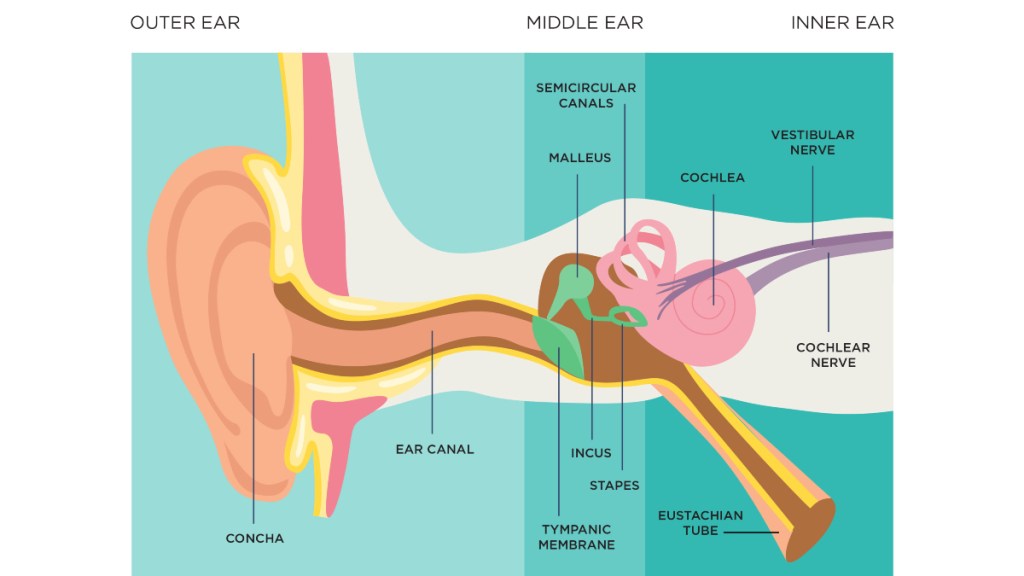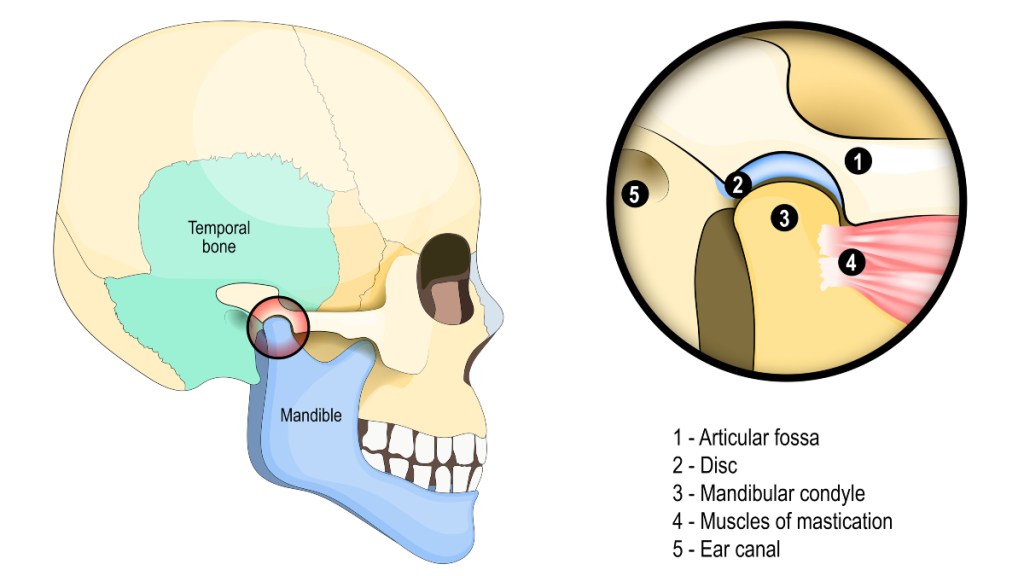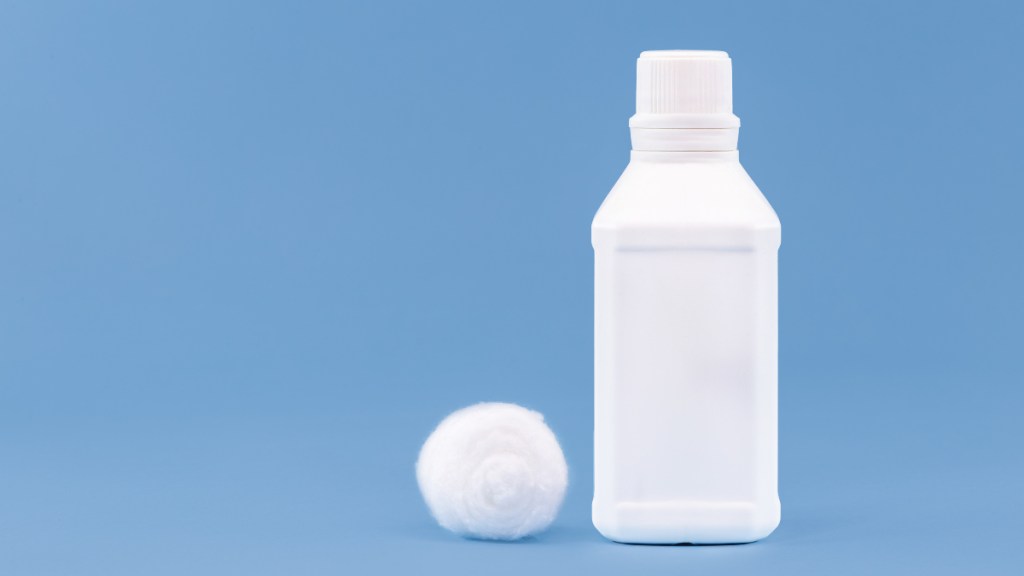Ever Get an Annoying Crackling Sound in Your Ear? MD Shares the Easy Fix You Already Have on Hand
Plus a top doctor reveals her go-to "rinse and pop" technique that nixes the noise

You’re going about your day tackling one to-do after the next, when suddenly a strange sound stops you in your tracks. There’s something crackling inside of your ear. You give your ear a scratch, but that doesn’t get rid of the crackling sound. So what is it?
If you’re panicking about a bug crawling around inside your head, take a deep breath: That problem is relatively rare. More likely it’s just a small issue related to built-up earwax or sinus congestion. Even better, the culprit behind the crispy-crunching is often something you can fix at home. Here’s how to tell what’s making that annoying noise, and how to get rid of a crackling sound in your ear the easy way.
Is it normal to have a crackling sound in your ear?
You’re unlikely to hear any snap–crackle–popping if all’s well with your ears. In fact, several different conditions can potentially cause a crackling sensation. “I wouldn’t call it common, but it’s something I see somewhat regularly,” says Kevin Brown, MD, PhD, Joseph P. Riddle Distinguished Professor of Otolaryngology — Head and Neck Surgery and Neurosurgery at the University of North Carolina School of Medicine in Chapel Hill, NC.
Top causes of a crackling sound in your ear
So what exactly is making that awful racket? Here’s a look at the most likely contenders, according to our experts.
1. Earwax buildup
Any kind of foreign object in your ear canal can muffle your hearing and potentially cause crackling or rustling noises, says Courtney Voelker, MD, PhD, a board-certified neurotologist and Director of the Adult & Pediatric Cochlear Implant Program at Pacific Neuroscience Institute in Santa Monica, CA. “The most common is earwax,” she adds. (But yes, in rare instances, it could be a bug. Yuck.) If you have a lot of buildup, you might also feel pain or fullness in your ear, hear ringing in your ears or even feel dizzy.
2. Cold, allergies or a sinus infection
Any kind of upper respiratory problem that can stuff up your nose can also stuff up your ears. “If you were to draw a straight line from the front of your nose to the back of your throat, that’s your middle ear space, the cavity of your inner ear,” Dr. Brown explains. “On the right and left sides, you have openings for your eustachian tubes, the tubes that connect the middle ears to the back of the throat.”

So when your nasal cavities get filled with fluid or mucus caused by an illness or allergies, the fluid can spill into your eustachian tubes and middle ear space. “That fluid can give you that Rice Krispy-like crackling sound,” says Dr. Brown. (Click through to learn if sinus infections are contagious, plus how to treat them.)
3. Ear infection
Ear infections, which often stem from a cold, can also cause your middle ear to become filled with fluid, creating a crackling sound, Dr. Voelker says. You might also have trouble hearing, feel ear pain or notice foul-smelling fluid draining from your ear.
4. Ear drum injury
While far less common, damage to your ear drum (the membrane separating your outer ear from your inner ear) can also make you hear rustling noises. “The injury can lead to bruising or swelling that can cause crackling,” explains Dr. Voelker.
5. TMJ disorder
Temporomandibular joint disorder, better known as TMJ, can cause pain and inflammation in your jaw joint. While the condition doesn’t actually make your ears crackle, it can sometimes feel that way. “TMJ can cause popping of the jaw joint, and people sometimes think the popping sound is coming from their ear,” Dr. Voelker says. The condition, which often stems from grinding your teeth, also causes jaw aching or soreness, stiffness, facial pain and headaches. (Click through to learn how a masseter muscle massage can alleviate TMJ pain.)

How to get rid of a crackling sound in your ear
The best way to get rid of that pesky crackling sound in your ear depends on what’s causing it, say both Dr. Brown and Dr. Voelker.
For earwax: Give it the flush
If you’re prone to having a lot of earwax and suspect that buildup is to blame, getting rid of the gunk can ease the crackling sound in your ear (and help you hear better overall). The best part: It’s easy to do with simple ingredients you likely already have on hand.
To loosen up the wax, fill a shot glass or small cup with a 1:1 mixture of hydrogen peroxide and water. Then dab a cotton ball into the mixture and, lying on the side of your unaffected ear, squeeze the liquid into the ear that’s experiencing the crackling, recommends Dr. Brown. Lie on your side and relax for a few minutes while the mixture absorbs into the wax.
“The hydrogen peroxide solution loosens up the wax away from your skin so it comes out more easily,” Dr. Voelker says. Your body will move the wax out on its own, or eventually it’ll make your ear a little itchy and it’ll come out when you scratch your ear. Just don’t use a Q-tip to try to scoop the wax out. “It just pushes the earwax farther into your ear and can damage your eardrum,” she explains.

Tip: Let your doctor know if the wax doesn’t start to loosen up with this DIY method after a few days. “A lot of times there’s so much in there that you can’t get it out yourself, and that’s the time to have a pro do it,” says Dr. Voelker.
For congestion: Do the rinse and pop
If your ears are plugged up with mucus from a cold, allergies or a sinus infection, Dr. Voelker has go-to “rinse and pop” strategy for clearing them out. First, use an over-the-counter nasal rinse like the NeilMed Sinus Rinse Kit (Buy from Amazon, $11.48) to flush mucus and any irritating allergies out of your nasal passages, which are connected to your eustachian tubes. Then take a few spritzes of an over-the-counter nasal spray like fluticasone, which helps calm inflammation around your nasal passages and the opening of your eustachian tubes. One to try: Amazon Basic Care Allergy Relief Nasal Spray (Buy from Amazon, $32.39).
After unclogging your sinuses, close your mouth and pinch your nose. Then very gently blow, like how you would if you were trying to pop your ears when you’re on an airplane. “That will force air up the eustachian tube into the middle ear space, causing the fluid in the middle ear space that’s causing the crackling sound to get displaced,” Dr. Voelker explains.
Some folks may notice an immediate improvement. But in others cases (like with a severe sinus infection or seasonal allergies), you may need to do this daily for up to 6 to 8 weeks for all of the fluid buildup to drain out of your ear and completely stop the crackling noise, says Dr. Voelker. (Click through to learn how a sleeping with a humidifier on your nightstand eases sinus congestion, too.)
For a visual guide, check out the video below.
A quick fix: Chew gum
If you’re experiencing only mild sinus congestion and need an on-the-go fix to get rid of the crackling sound in your ears, chewing a stick of gum might be enough to do the trick. “Chewing motions, in moderation, can open up the eustachian tube so the fluid can drain down,” Dr. Voelker explains. Just don’t chomp endlessly, since overworking your jaw can make it ache, she adds.
When to see a doctor about a crackling sound in your ear
It’s generally fine to try to get rid of crackling sound in your ear at home as long as you’re not experiencing symptoms that could signal something more serious.
“If you have ear pain, drainage or a foul smell coming from your ears, you should go right to the doctor since that could indicate an ear infection,” Dr. Voelker says. That’s especially true if you have diabetes or are immunocompromised, which can cause even mild infections to quickly turn serious. If you have an infection, your doctor may recommend treating it with antibiotics.
You should also let your doctor know if you’re struggling with earwax buildup that you can’t clear on your own. They can use more powerful irrigation techniques to safely flush the wax out without damaging your eardrum.
For more ways to sharpen and protect your hearing:
MD-Approved Tricks to Sharpen Hearing Naturally — No Hearing Aid Required
This content is not a substitute for professional medical advice or diagnosis. Always consult your physician before pursuing any treatment plan.













